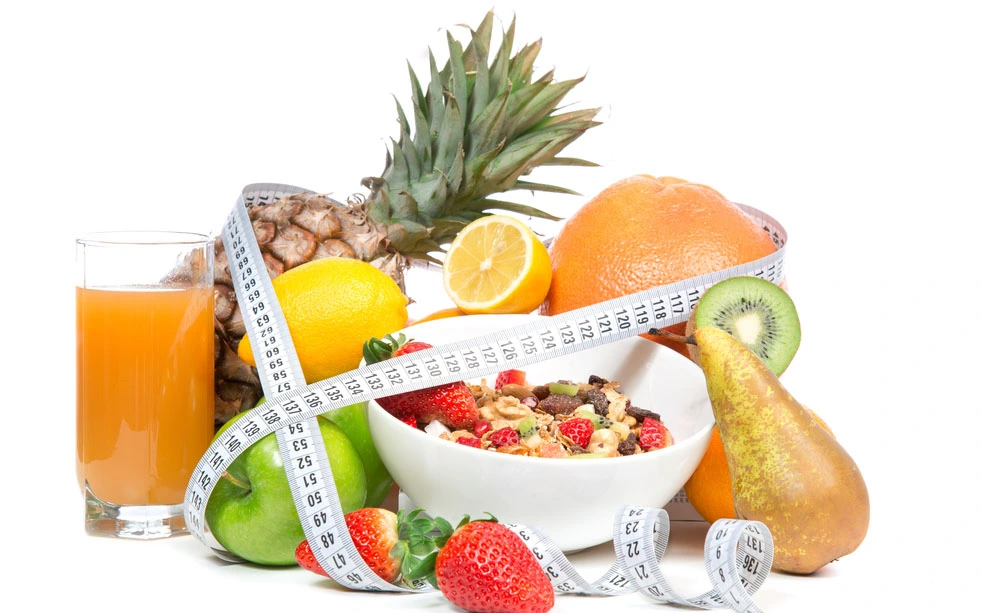Fruits are nature’s ready-made snacks packed with vitamins, fiber, and other nutrients that support healthy body functions. Certain fruits are particularly beneficial for weight loss and maintaining good health. They are low in calories and fat and rich in essential nutrients that can help boost energy levels, enhance metabolism, and curb cravings. This article delves into the top 10 fruits ideal for weight loss and highlights how their specific properties contribute to overall health. Whether you’re looking to shed a few pounds or improve your diet, these fruits offer delicious and nutritious solutions to help you achieve your health goals.
Why Choose Fruits for Weight Loss?
Fruits are naturally low in calories but high in nutrients, making them an excellent choice for those looking to lose weight without sacrificing nutrition. They provide vitamins, minerals, and antioxidants that support overall health, including improved digestion and reduced risk of chronic diseases.
Natural Appetite Suppressants
The fiber content in fruits helps keep you full longer, reducing overall calorie intake throughout the day. This makes fruits an ideal snack for weight management and can help curb cravings for less healthy options.
Top 10 Fruits for Your Diet
Apples
Apples are high in fiber and water, which help fill you up and reduce appetite. An apple a day can also keep the doctor away by lowering the risk of developing heart disease, diabetes, and cancer.
Nutritional values:
- Calories: Approximately 95 calories per medium-sized apple
- Fiber: About 4 grams
- Vitamin C: 14% of the Daily Value (DV)
- Other: Rich in potassium and a variety of antioxidants, including quercetin.
Berries
Strawberries, blueberries, raspberries, and blackberries are low in calories but high in fiber, vitamins, and antioxidants. Berries have been linked to a reduced risk of heart disease, obesity, and diabetes.
Nutritional values:
- Calories: Roughly 50 calories per cup for strawberries; blueberries, raspberries, and blackberries range from 70 to 85 calories per cup.
- Fiber: 3-8 grams per cup, depending on the type of berry.
- Vitamin C: Ranges from 24% DV in blueberries to 141% DV in strawberries per cup.
- Other: High in antioxidants like anthocyanins.
Grapefruit
Starting your day with a serving of grapefruit can boost metabolism and help manage blood sugar levels, making it an excellent choice for weight loss. Grapefruit is also hydrating and rich in immunity-boosting vitamin C.
Nutritional values:
- Calories: About 52 calories per half grapefruit.
- Fiber: 2 grams per half grapefruit.
- Vitamin C: 64% of the DV per half.
- Other: Contains lycopene, particularly in pink and red varieties.
Kiwi
Kiwi is delicious and packed with vitamins C, K, E, and potassium. Its high fiber content can help control blood sugar levels and improve cholesterol.
Nutritional values:
- Calories: Around 42 calories per fruit.
- Fiber: 2 grams per kiwi.
- Vitamin C: 117% of the DV per kiwi.
- Other: Also provides vitamin K, vitamin E, and potassium.
Oranges
Oranges are another great source of vitamin C, fiber, and antioxidants. They are low in calories, which makes them perfect for a weight-loss diet. Additionally, the high fiber content helps to stabilize blood sugar levels.
Nutritional values:
- Calories: Typically 62 calories per medium orange.
- Fiber: 3 grams.
- Vitamin C: 93% of the DV.
- Other: Contains folate and potassium.
Bananas
Rich in potassium and fiber, bananas help to maintain normal blood pressure and are great for digestive health. Their natural sweetness provides a satisfying treat without the fat and cholesterol.
Nutritional values:
- Calories: About 105 calories per medium banana.
- Fiber: 3 grams.
- Vitamin C: 17% of the DV.
- Other: High in potassium and vitamin B6.
Pears
Pears are another fiber-rich fruit that helps promote fullness and reduce calorie intake. They also contain several antioxidants that protect against various diseases.
Nutritional values:
- Calories: Approximately 102 calories per medium pear.
- Fiber: 6 grams.
- Vitamin C: 12% of the DV.
- Other: It also provides small amounts of vitamin K and copper.
Watermelon
This hydrating fruit is low in calories and high in water, which helps you feel full. Watermelon also contains antioxidants, including lycopene, which has anti-inflammatory properties.
Nutritional values:
- Calories: Roughly 46 calories per cup.
- Fiber: Less than 1 gram per cup.
- Vitamin C: 14% of the DV per cup.
- Other: Rich in lycopene and hydration due to high water content.
Avocado
Unlike most other fruits, avocados are rich in healthy fats essential for weight management and heart health. They also pack plenty of fiber and potassium.
Nutritional values:
- Calories: About 234 calories per medium avocado.
- Fiber: 10 grams.
- Vitamin C: 17% of the DV.
- Other: High in healthy monounsaturated fats, vitamin E, and potassium.
Papaya
Papaya is low in calories and rich in fiber, vitamin C, and antioxidants. It contains an enzyme called papain that aids digestion and can help prevent constipation and bloating.
Nutritional values:
- Calories: 59 calories per cup.
- Fiber: 3 grams per cup.
- Vitamin C: 144% of the DV per cup.
- Other: It contains an enzyme called papain that aids digestion and has anti-inflammatory properties.
Incorporating Fruits into Your Diet
Adding fruit to your meals can increase nutrient intake without too many calories. For example, adding fresh berries to your morning oatmeal or slicing a kiwi over your yogurt can enhance your meals’ flavor and nutritional value.
Healthy Snacks
Instead of reaching for processed snacks, choose a piece of fruit. Keeping a bowl of washed and ready-to-eat fruit such as apples, pears, or grapes on the counter can encourage healthier snacking habits.
Supporting Weight Loss Goals with Fruits
Smoothies are a great way to enjoy a concentrated dose of fruits. Combine leafy greens with a handful of berries, a banana, or a slice of avocado for a nutritious and filling smoothie that can aid in weight loss.
Use Fruits as Dessert
Replacing high-calorie desserts with fruit can significantly reduce calorie intake while satisfying your sweet tooth. A bowl of mixed berries or a sliced peach can be a refreshing and healthy way to end any meal.
Understanding the Role of Fruits in Overall Health
Fruits like oranges, apples, and berries are rich in dietary fiber and antioxidants like vitamin C and beta-carotene, significantly reducing cholesterol levels and preventing cardiovascular diseases.
Digestive Health
High-fiber fruits such as pears, apples, and papaya help promote regular bowel movements and can prevent constipation. Fiber is essential for maintaining a healthy digestive system and contributes to long-term weight management.
Anti-Inflammatory Properties
Many fruits have natural anti-inflammatory properties due to their high antioxidant content. For example, cherries and berries contain anthocyanins that help reduce inflammation and may lower the risk of chronic diseases such as arthritis and heart disease.
Conclusion
Fruits are a powerhouse of nutrition and crucial for weight management and overall health. They provide essential vitamins, minerals, and fiber, and their natural sweetness can satisfy cravings without the guilt. Incorporating these top 10 fruits into your diet can help you lose weight and improve your overall health significantly. Remember to enjoy fruits in their whole form to benefit from all the fiber and nutrients they offer.










